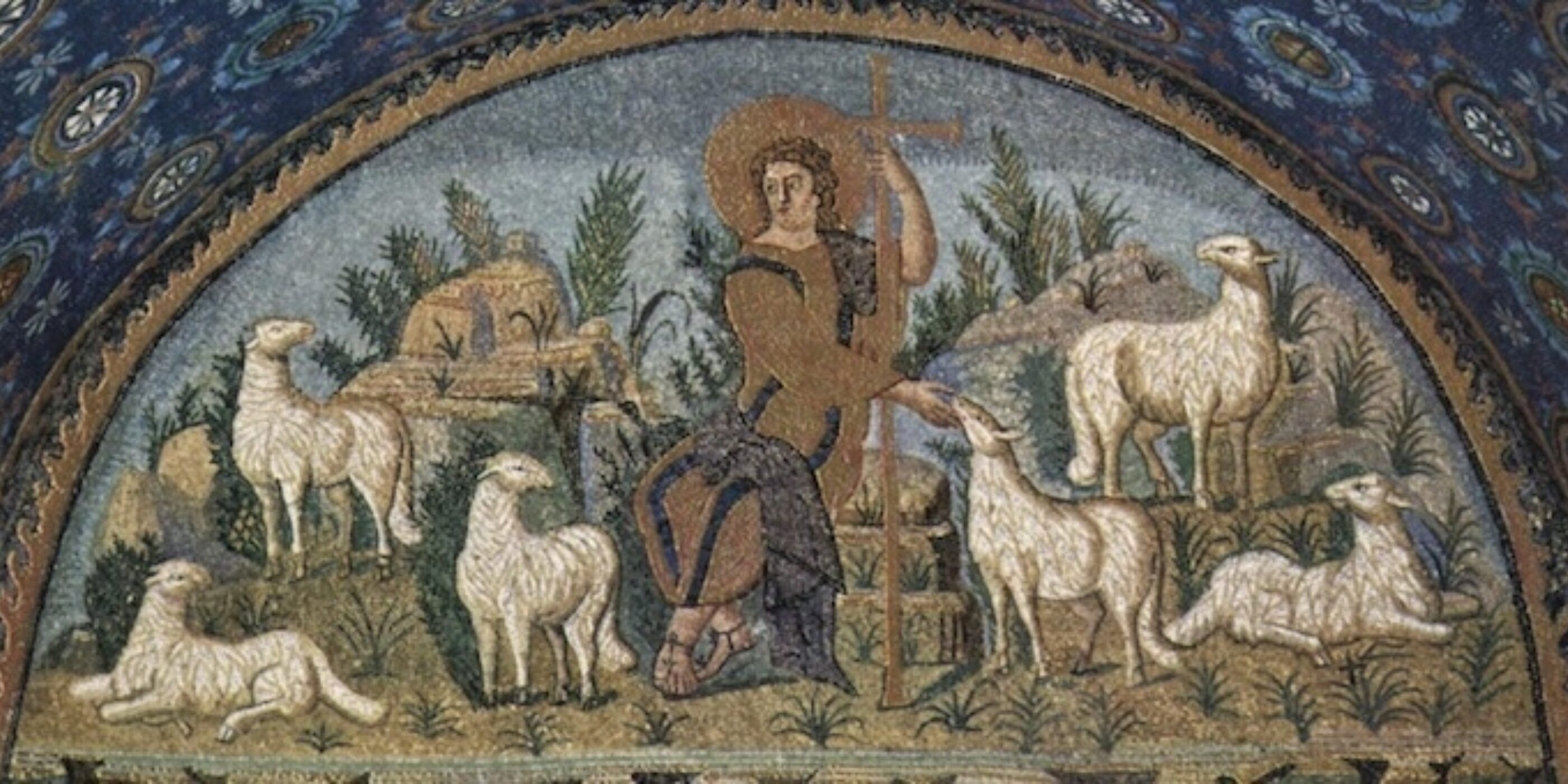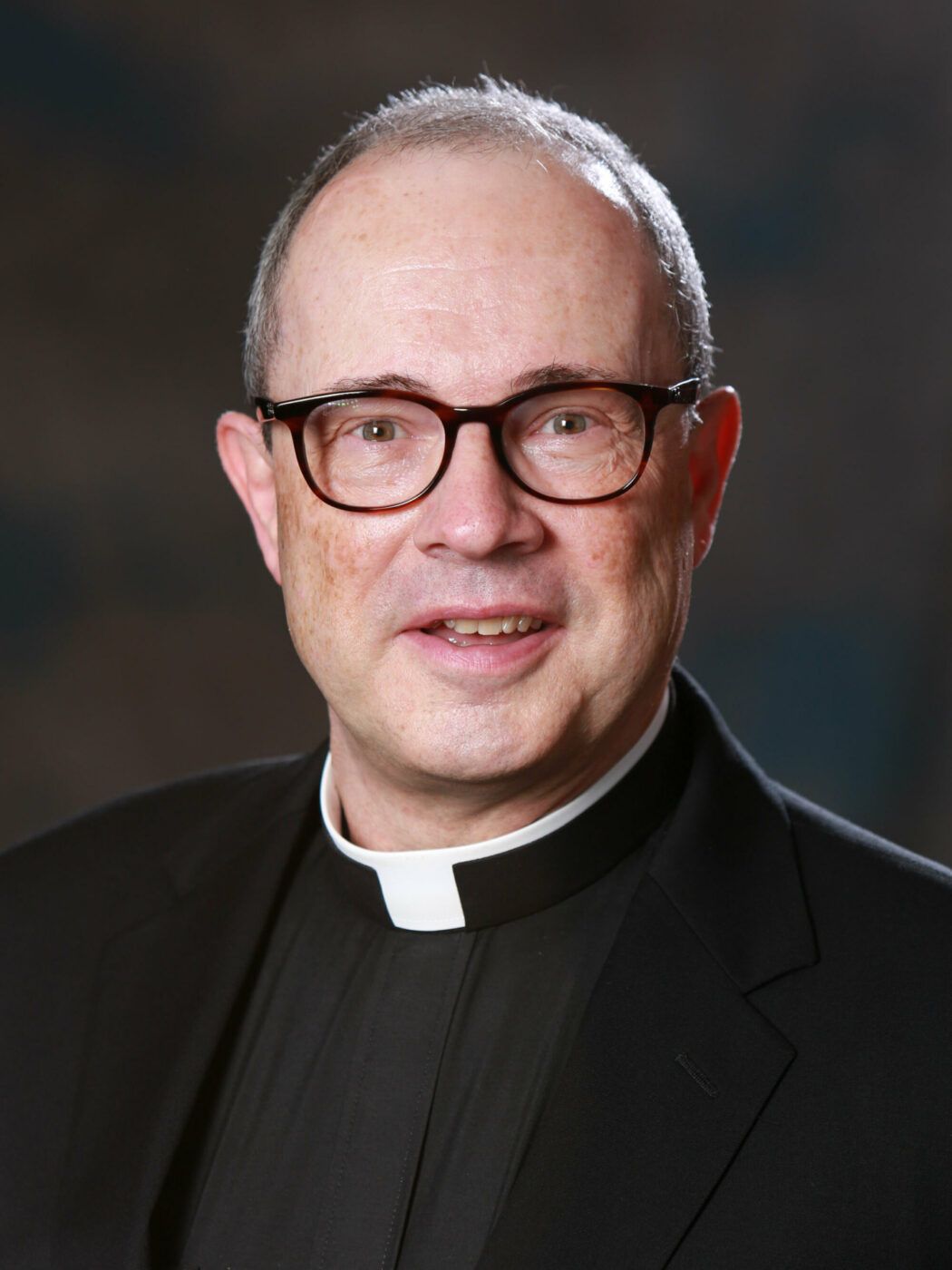On the Sixteenth Sunday of the Year, the Word of God leads us to reflect on qualities of authentic leadership. Often, within the Scriptures, the best image for responsible leadership is that of the shepherd. In ancient Israel and other cultures of the ancient world, the figures of the king and shepherd were almost synonymous. The best example of the shepherd-king was David the shepherd, who was taken from the flock to be the king over the united kingdoms of Judah and Israel. The shepherd is the one who not only leads the flock but also feeds and provides for its needs, especially with regard to shelter and protection.
In the first reading the prophet Jeremiah offers a harsh assessment of shepherds who have failed to properly lead the people. The prophet severely criticizes the civic leaders and condemns the kings of Judah who neglected the people and misgoverned the flock. Instead of gathering the people into unity they “scattered” them and failed to “care for them.” Moreover, the leaders brought “fear and trembling” on the people. Knowing that God cares for the people, Jeremiah foresaw a prophet like the ideal King David who would “govern wisely” and “do what is just and right in the land.”
Next, Responsorial Psalm 23 puts all reflection on leadership into proper perspective as it prayerfully proclaims, “The Lord is my shepherd; there is nothing I shall want.” The Psalm directs our attention to God’s own compassionate love for his people as the model of the true leader who is devoted to the good of the people and who drives away fear.
The passage from Mark’s Gospel makes further use of the image and presents Jesus as the compassionate shepherd. As the paradigm of what leading and shepherding is all about, Jesus is really the fulfillment of God’s promise to give Israel a shepherd. Jesus is the Good and True shepherd who guides the people in God’s ways.
We want to pay attention to the manner of Jesus’ shepherding today. Having sent his apostles out on a mission to care for the sick and to heal them, today’s Gospel passage picks up the account with the apostles returning from their mission and reporting to Jesus all they had done. Jesus cares for the flock, the few who are near and the many who come from far away. The Gospel tells us, “his heart was moved with pity for them, for they were like sheep without a shepherd; and he began to teach them many things.”
Lastly, the Letter to the Ephesians points to another important quality of authentic leadership, that of building unity. The letter speaks of “those once far off” and those “near” — terms from the Old Testament prophets that describe the separation between Jews and Gentiles. The Letter to the Ephesians gives us greater insight into how Jesus’ compassion and death bridged the ancient differences and brought about reconciliation. Jesus “preached peace” to both peoples that he “might reconcile both to God.” Jesus’ work of reconciliation was costly but was the ultimate purpose of his presence among us. Now, “through him, we [all] have access in one Spirit to the Father.”
Authentic and true leadership takes place in many ways and those who exercise leadership as the head of a family, business, institution, city, state, or country know the challenges of responsibly caring for others and building unity. Today, the Word of God reminds all who exercise leadership of the importance of justice, care, and compassion for those on the margins and the courage and strength to bring and keep peoples together. Every disciple of Christ, and especially our leaders are called to work for peace and to build up the Body of Christ. We are responsible to uphold the fundamental values of our faith while, at the same time, working hard for reconciliation, justice, and peace.
Today we turn in prayer once again to the Good Shepherd: As we give thanks to the God of abundant life and love for shepherding us through our concerns and dark valleys, we pray that He will continue to guide our efforts to follow His right path. As He calls us in our particular ways of life, may He help us be instruments of His peace, justice, care, and service in our world.
Those who are called to the priesthood find helpful insight about pastoral leadership, and pastoral formation strives “to initiate seminarians to the care, guidance, and leadership that are extended to a community. The pastor is to be a man of communion and the shepherd of a flock. More than simply acquiring skills, pastoral formation signifies a level of personal development, fitting for a priest who acts in the person of Jesus Christ, Head and Shepherd, Servant and Spouse. Those responsible for the formation must help the seminarian put on both the mind and heart of Christ, the Good Shepherd.”

The Scriptures today, especially the first reading and the Gospel, have something to say about authentic leadership. A fundamental biblical image for responsible leadership draws on the figure and image of the shepherd. [In ancient Israel, as in other cultures of the ancient Near East, the figures of king and shepherd were very closely associated. David the shepherd boy was taken from among the flock to be king over the united kingdoms of Judah and Israel. The image of shepherd contains within it the notion of feeding and providing for the flock.]
(cf. PPF6: 370.d. [PPF6 370d: Pastoral formation must initiate seminarians to the care, guidance, and leadership that are extended to a community. The pastor is to be a man of communion and the shepherd of a flock. (more than simply acquiring skills,] pastoral formation signifies a level of personal development, fitting for a priest who acts in the person of Jesus Christ, Head and Shepherd, Servant and Spouse… Formators must help the seminarian put on both the mind and heart of Christ, the Good Shepherd.]
Jeremiah, writing toward the end of the reign of Zedekiah just before the final captivity in 587, looks back over recent reigns and condemns the last kings of Judah as shepherds who have misgoverned their flock.
Sensing that the apostles are tired from their work, Jesus invites them to come with him “to a deserted place and rest a while.” But they could not escape the yearning of the crowds to see and hear Jesus. Coming ashore at what they expected to be a quiet place, they find that the crowds have already gathered there “from all the towns,” waiting for them. Despite Jesus’s own exhaustion,
Anyone who has had to exercise leadership, whether in a family, an institution or in a civic role, knows how challenging it can be to reconcile differences and to build unity. Nevertheless, for both religious and secular leaders, our Scriptures this Sunday urge both compassion for those who are vulnerable and the strength to bring peoples together.


